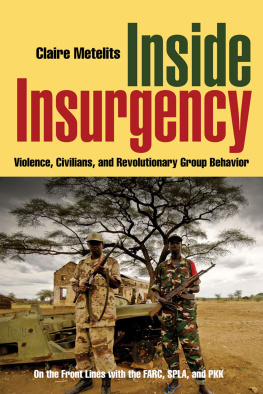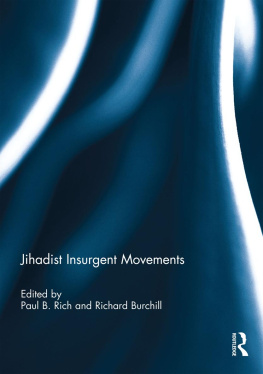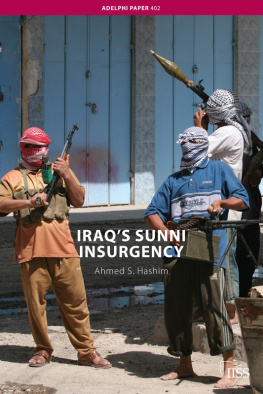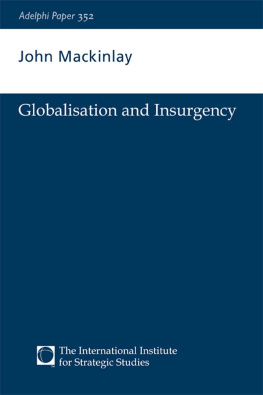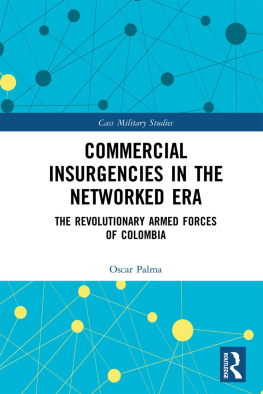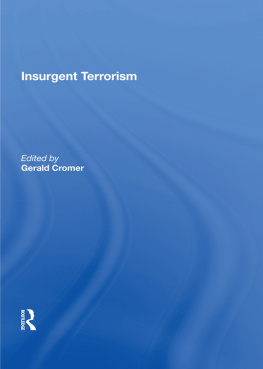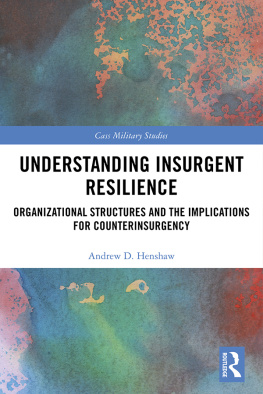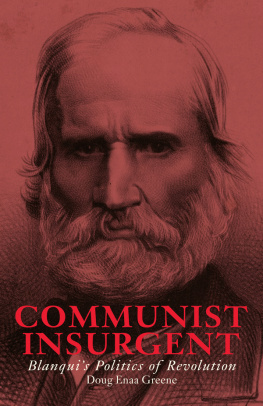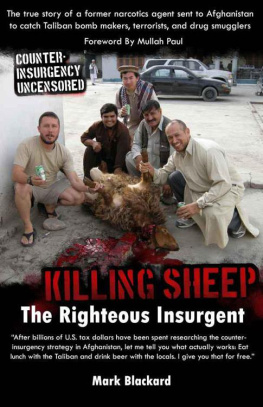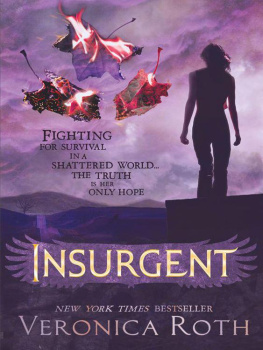Thank you for buying this ebook, published by NYU Press.
Sign up for our e-newsletters to receive information about forthcoming books, special discounts, and more!
Sign Up!
About NYU Press
A publisher of original scholarship since its founding in 1916, New York University Press Produces more than 100 new books each year, with a backlist of 3,000 titles in print. Working across the humanities and social sciences, NYU Press has award-winning lists in sociology, law, cultural and American studies, religion, American history, anthropology, politics, criminology, media and communication, literary studies, and psychology.
Inside Insurgency
NEW YORK UNIVERSITY PRESS
New York and London
www.nyupress.org
2010 by New York University
All rights reserved
Library of Congress Cataloging-in-Publication Data
Metelits, Claire.
Inside insurgency : violence, civilians, and revolutionary group
behavior / Claire Metelits.
p. cm.
Includes bibliographical references and index.
ISBN-13: 9780814795774 (cl : alk. paper)
ISBN-10: 0814795773 (cl : alk. paper)
ISBN-13: 9780814795781 (pb : alk. paper)
ISBN-10: 0814795781 (pb : alk. paper)
1. Violence. 2. Political violence. 3. Insurgency. I. Title.
HM886.M48 2009
303.6'4dc22 2009029209
New York University Press books are printed on acid-free paper,
and their binding materials are chosen for strength and durability.
We strive to use environmentally responsible suppliers and materials
to the greatest extent possible in publishing our books.
Manufactured in the United States of America
c 10 9 8 7 6 5 4 3 2 1
p 10 9 8 7 6 5 4 3 2 1
Preface
When folks find out what, or more specifically whom, I study, I get either one of two questions: Why do you study insurgents? or How do you study insurgents? The questions are usually more along the lines of, Why the #*!* do you study them? or How the #*!* do you get into those places? These are often accompanied by comments on my sanity or (on the odd occasion) suspicions about my patriotism. The how is a matter for another timeor if you are a student of mine, you've already heard my stories on more than a few occasions. The why, however, is somewhat more convoluted, butI hopeno less interesting.
My first experience traveling outside the United States was in apart-heid-era South Africa. I was nineteen years old. An uncle of minea Foreign Service officer who at the time had no children of his ownhad years before promised me and my two younger siblings that when we were old enough he would take us each on a trip outside the United States. (I imagine he wanted our cultural horizons to expand beyond our hometown of Phoenix, Arizona.) Upon finishing my first rather tumultuous year of college as a journalism student, I wrote to my uncle and told him I was ready for my trip. To where are we going? he inquired. South Africa, I wrote.
Still very far from discovering political science, I nevertheless was fascinated by the politics of South Africa in 1993. One could say my interests were more along the lines of social activism. Making good on his promise, my uncle (on a much-needed break from war-torn Angola) met me in Johannesburg for what would be a month-long traipse around the country. He had devised a detailed and elaborate itinerary filled with what to most people would be wonderful tourist destinations. However, as we whisked through animal parks, the wine country, and diamond-mining communities, I could not pull my eyes or my curiosity from other, more obvious elements of the place: the people and the conditions. Instead of photo albums filled with pictures of Krueger National Park and gorgeous areas such as Stellenbosch, I came home with snapshots of shantytowns and people living in destitution on the streets. What interested me about South Africa was the way the politics of the place had trickled down in such a devastating way to those who had so little say in the matter.
Fast-forward several years. Still unimpressed with the idea of being a scholar of political science, I nevertheless remained fascinated by countries wracked with instabilityparticularly conflict. I managed to get myself a very informal internship in southern Africa the summer before I began my master's degree. One of the places I told the administrators I wanted to visit was Angola. I wanted to see how the war there had affected the civilian population. Who was the greater enemy, really, the government of Angola or the insurgent group called the National Union for the Total Independence of Angola (UNITA)? I was sent to Luanda, Angola's capital, to research the peace movement that was gaining momentum there. However, once I reached the country, I found myself more interested in the actual war, and how this war had turned the country into a humanitarian disaster.
Luanda and the surrounding countryside shocked me. It was in Angola that I saw despair in the eyes of civilians, acts of criminality because there was no other mode of survival, and starvation. It was also in Angola that I was enormously humbled when a local family invited me to share a meal with them and insisted I take the only soda available. It was in Angola that I was first mugged, not once but twice over the course of a week, and where I learned to stop being angry about such acts; it is where I started to understand these acts, instead. It is where I learned that survival is a human instinct and can drive people to do things others may perceive as unthinkable.
These travels led to other trips in Africa and later to ones in other continents. I also discovered that I wanted to keep researching conflict, the actors involved, and the civilians affected. It was during a summer internship in Oslo, Norway, when I met with a scholar who had recently returned from southern Sudan and the conflict that was raging there. He mentioned that the insurgent group fighting the government, the SPLA, was requiring that foreigners who travel through the areas under its control be issued a rebel visa.
You mean like a state would issue? I asked him, shocked at how organized and bureaucratic this insurgent group sounded.
Like a state, he told me. Fascinating! I thought. And, he continued, the SPLA is allowing southerners to vote in local elections.
Even more fascinating! An insurgent group that walked like a state, talked like a state, but wasn't really a state. How, I wondered, did this affect southern Sudanese? What did they think of the insurgents? Did they find the SPLA's bureaucracy to be beneficial to them and to their survival? A few months later I found myself on a tiny airplane heading out of southern Sudan, where I had spent several weeks conducting interviews. Reading from my field notes today, I see that I wrote, I believe there is something useful to be taken from the experiences of the SPL[A]. Don't know whatyet. But I want to study it further. This book is the result of my studies.
I would not have been able to accomplish nearly a fraction of the fieldwork and other research that went into this book without the support of numerous organizations and people. I would like to thank several individuals who provided me with guidance and support during and after my research. In particular I thank William Reno, Timothy Earle, and Frank Safford at Northwestern University, for their mentorship. Thanks also to Reuel Rogers at Northwestern, who advised me on the initial book-proposal stages. Ato Kwamena Onoma helped formulate my original questions and thoughts for this project, as did J. Andrew Grant. A special thanks goes to Jeremy Weinstein, who, in a phone conversation with me, helped inspire this study. Many thanks to Kendra Koivu, a fantastic political scientist and an even greater friend and fellow fieldwork junkie. ystein Rolandsen at the International Peace Research Institute, Oslo (PRIO) took the time to read early drafts of my SPLA chapter, and for that I am grateful. Thanks to Nils Petter Gleditsch at PRIO and his staff for facilitating the initial stages of my research in their library in Oslo. Joakim Kruetz at the University of Uppsala provided me with the initial one-sided violence data. Jorge Restrepo also helped me gather data on the FARC.

